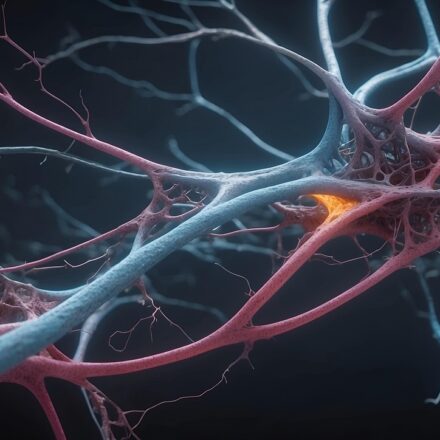In December last year, Justice Emmett of the Federal Court handed down an important decision for originator pharmaceutical companies who seek access to documents evidencing applications to list generic versions of their products on the Australian Register of Therapeutic Goods (ARTG), and generic companies who assume such applications are kept confidential.
The case concerned an application under the Freedom of Information Act (FOI Act) by iNova for copies of documents relating to applications to list generic versions of iNova’s products containing imiquimod and phentermine on the ARTG.
The following provisions of the FOI Act are worth noting:
- s11 provides that with the exception of exempt documents, every person has a legally enforceable right to obtain access to a document of an agency.
- s37 provides that a document is an exempt document where its disclosure could reasonably be expected to prejudice the enforcement or proper administration of the law.
- s43 provides that a document is an exempt document if its disclosure would disclose information with a commercial value that would be destroyed or diminished if the information was disclosed.
- s25 provides that nothing is to be taken to require an agency to give information in relation to the existence or non-existence of a document where that information, if included in a document, would make that document an exempt document under s37, (or other sections relating to national security, defence or international relations). Interestingly, there is no reference in s25 to documents which are exempt under s43. In these circumstances, the agency may give notice that it neither confirms or denies the existence of the document, but that, assuming the existence of such a document, it would be an exempt document.
- s26 provides that where an application is refused, the applicant must be given reasons for the decision, however such a notice is not required to contain information that would cause the notice to be an exempt document.
In the case of both phentermine and imiquimod, the Secretary declined to inform iNova whether the documents existed but indicated that if any such documents did exist, they would be exempt under s43 of the FOI Act because disclosure would destroy the commercial value of confidential information. In the case of imiquimod, the Secretary also declined to inform iNova whether the requested documents existed, but indicated that if any such documents did exist, they would be exempt document under s37 of the FOI Act because their disclosure would prejudice the proper administration of the PBS under the Health Act. Knowing the identity of a would be generic sponsor was said to provide iNova with the opportunity to delay listing of generic products on the ARTG by instituting patent or copyright proceedings, by seeking injunctive relief against regulators, or by changing the originator product. The TGA noted that after listing a generic product on the ARTG, the next step of listing the product on the PBS significantly reduces the public cost of subsidising medicines. In the case of imiquimod, in the 2009 calendar year, 23,000 PBS prescriptions were dispensed at a cost of $3.3 million, with a 16% price reduction (which would follow from first listing of a generic product) offering a potential saving of $400,000 per year.
While it was common ground that confirmation that the documents existed would not provide iNova with the name of a would be generic sponsor, the TGA also argued that knowledge of the existence of an application for generic listing would also enable iNova to identify the sponsor because of the small size of the Australian market. Consequently, the Secretary was of the view that informing iNova whether the documents in relation to imiquimod existed would destroy the commercial value of confidential information and prejudice the proper administration of the law and the administration of the PBS under Health Act.
iNova appealed this decision to the Administrative Appeals Tribunal (the Tribunal).
The Tribunal’s decision
The Tribunal found that s25 of the FOI only permits a “neither confirm or deny” response where, assuming a document exists, it would be exempt under s37. That is, such a response is not permitted where, assuming a document exists, it would be exempt under s43. As it was thought to be at least arguable that disclosure of documents in relation to imiquimod which would enable iNova to take action to delay listing of a generic product on the PBS could reasonably be expected to prejudice the proper administration of the Health Act, a “neither confirm or deny” response was permissible in relation to imiquimod (provided that information in relation to the existence or non-existence of the documents would cause the notice to be an exempt document). However, it was found that s25 did not permit such a response where, if the documents did exist, they would be exempt under s43. Consequently, such a response in relation to phentermine was not open to the Secretary.
In relation to imiquimod, the Tribunal also rejected the Secretary’s argument that disclosing the existence or non-existence of documents in this case would cause the notice itself to be exempt on the basis that its disclosure would prejudice the proper administration of the law by adversely affecting the Department’s ability to obtain value for taxpayers’ money. While it was accepted that delay in listing on the ARTG would result in delay listing on the PBS, which could in turn result in a delay in reducing government subsidy, it was not accepted that iNova would be able to use the knowledge of the existence of a generic application to identify the sponsor. Similarly, the Tribunal was not satisfied that iNova would in fact take action to delay the listing.
The Tribunal also emphasised that a patent or copyright holder is entitled to bring proceedings to restrain infringement of their rights, and instituting proceedings to do so cannot be said to prejudice the proper administration of the law. Consequently, it was not found that the Secretary had shown that disclosure of the existence of documents could reasonably be expected to prejudice the proper administration of the Health Act.
The Tribunal remitted the matter to the Secretary with a direction to inform iNova whether the requested documents existed.
Appeal to the Federal Court
The Secretary appealed to the Federal Court on the basis that the Tribunal was wrong to conclude that an agency is only entitled to refuse to inform an applicant whether or not requested documents exist where the documents are exempt under s37 (ie but not s43). Justice Emmett agreed, finding that there is nothing in s26 or elsewhere that requires a decision maker to disclose the fact that a document exists or does not exist. It was open to the Secretary to decline to inform the applicant whether a document existed where to do so would make the notice exempt. It was also thought that if the TGA was required to inform an applicant of the fact that no documents existed, the applicant would be able to determine when such a document first came into existence by making periodic requests for the same information.
In relation to the question of whether disclosure of the existence of the documents would cause such a notice to be exempt, it was also found that the question was not whether iNova would be able to identify a sponsor, or whether iNova would take a particular step, but whether the disclosure could reasonably be expected to prejudice the proper administration of the law, as an objective test, irrespective of the capacity or identity of a particular applicant.
The matter has been referred back to the Tribunal for reconsideration according to the Federal Court’s reasons.
We will keep you posted on the Tribunal’s decision.








